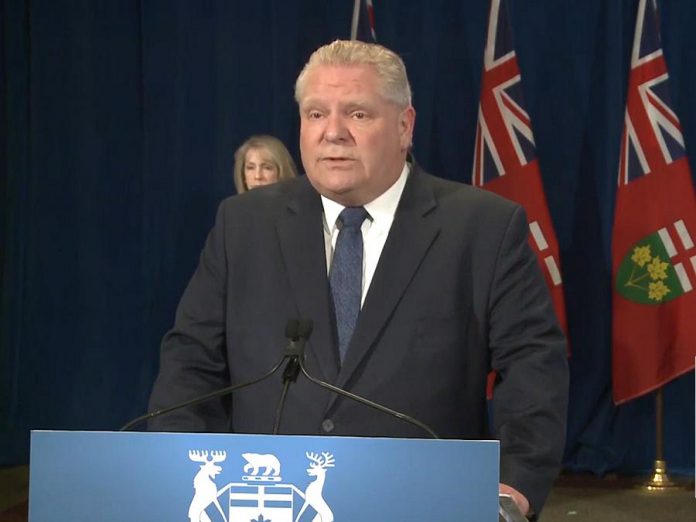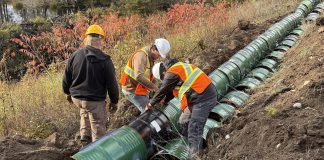
During a media briefing on Wednesday (April 22), Ontario Premier Doug Ford refused to commit to begin loosening COVID-19 emergency measures by the Victoria Day weekend, despite suggesting earlier in the day that might happen.
“I don’t have a crystal ball and neither does anyone else,” Ford said. “If we keep seeing the curve flatten and start heading southward, we can start opening up a little bit at a time. But I can’t predict a month down the road.”
Earlier on Wednesday during an interview with Bill Caroll on Newstalk 580 CFRA in Ottawa, Ford had said he hoped some measures could be loosened by Victoria Day (May 18) — the unofficial start of summer in Canada.
At his media briefing, Ford clarified that any loosening of restrictions would be based on the advice of Ontario’s chief medical of health, and that it would happen “very, very slowly.”
“Please have patience, even in regions where there might not be any COVID cases,” Ford said. “We just want to open up the economy very slowly. We’ll get there, and once we get there, we’ll light a fire under the economy.”
On Thursday (April 23), the government announced it would be extending until Wednesday, May 6th all emergency orders made to date under the Emergency Management and Civil Protection Act. Although the state of emergency has already been extended until May 12th, the provisions of the legislation only allow the extension of emergency orders in 14-day increments.
The extension includes the closure of outdoor amenities in parks and recreational areas, non-essential workplaces, public places and bars and restaurants, along with restrictions on social gatherings and limiting staff from working in more than one retirement home or long-term care home.
“We are making steady progress in our battle against this deadly virus, but we are not out of the woods by a long shot,” Premier Doug Ford said. “It is absolutely necessary to extend these emergency orders to continue keeping all Ontarians safe and healthy.”
“Every effort made by each of us to stay home, practise physical distancing and wash your hands has been, and will continue to be, the key to stopping the spread of this virus.”
The Ontario government has also introduced a new emergency measure to allow Ontario’s 600 mental health and addictions agencies to redeploy staff within different locations or between programs, and to employ extra part-time staff, temporary staff, or contractors during the COVID-19 outbreak.
Here is the complete list of emergency orders that have been extended until May 6, 2020:
- Closure of establishments
- Prohibiting public events and gatherings or more than five people
- Work deployment measures for health care workers
- Drinking water and sewage
- Electronic service of documents
- Work deployment for long-term care homes
- Off-peak electricity pricing
- Closure of places of non-essential businesses
- Traffic management
- Streamlining requirements for long-term care homes
- Prohibiting unfair pricing on necessary goods
- Closure of outdoor recreational amenities
- Enforcement of orders
- Work deployment for boards of health
- Work deployment measures in retirement homes
- Access to COVID-19 status information by specified persons
- Service agencies providing services and supports to adults with developmental disabilities
- Pick up and delivery of cannabis
- Signatures in wills and powers of attorney
- Use of force and firearms in policing services
- Child care fees
- Agreements between health service providers and retirement homes
- Temporary health or residential facilities
- Closure of public lands for recreational camping
- Work deployment measures for service agencies providing violence against women residential services and crisis line services
- Limiting work to a single long-term care home
- Work deployment for district social services administration boards
- Deployment of employees of service provider organizations
- Work deployment measures for municipalities
- Limiting work to a single retirement home


























